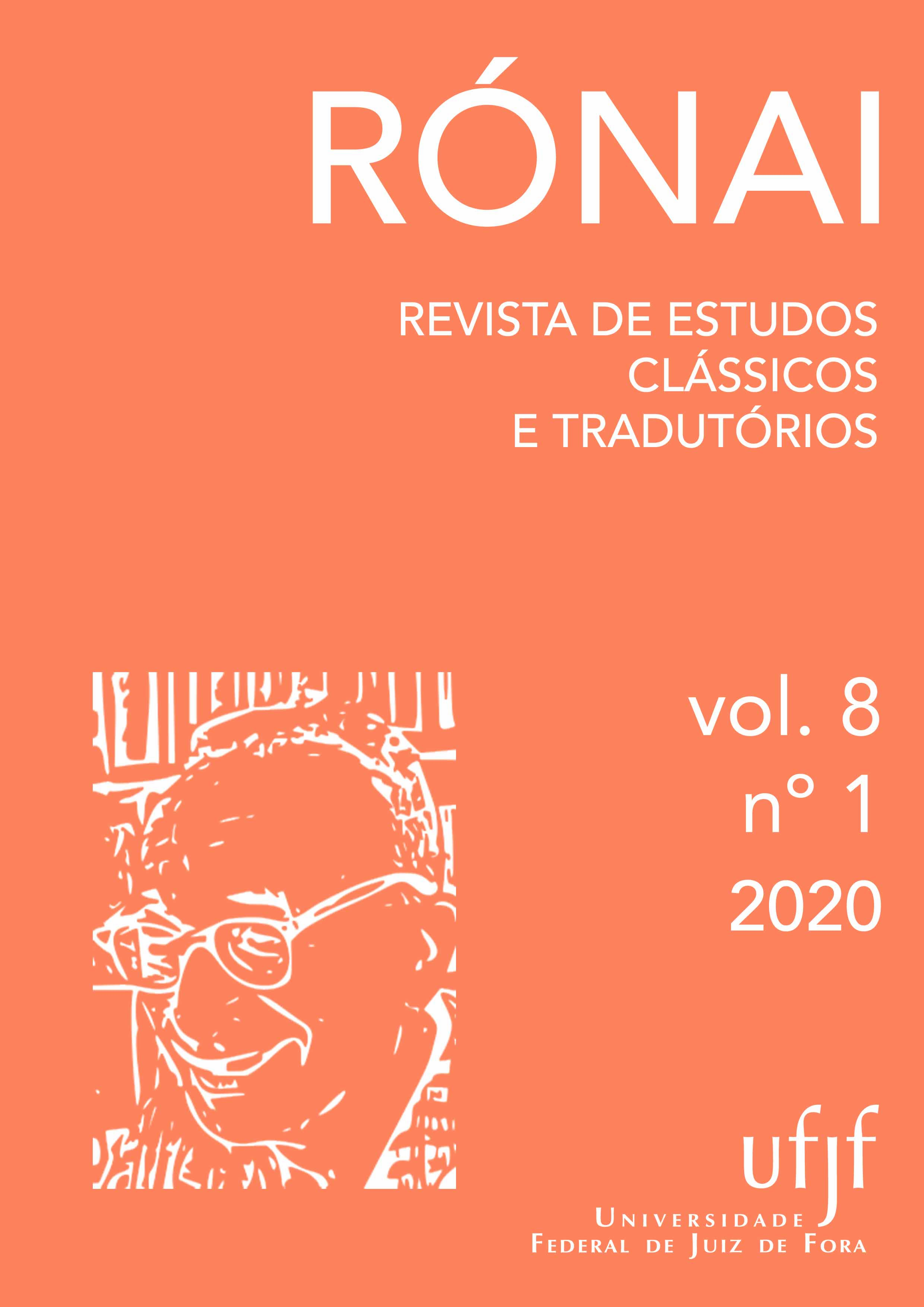Translation of the speech Against Euthynus (without witness) of Isocrates
DOI:
https://doi.org/10.34019/2318-3446.2020.v8.28174Keywords:
Isocrates, Against Euthynus, forensic, epideictic, eikósAbstract
Of all the speeches composed by the Athenian Isocrates (436-338 B.C.) that reached our days, Against Euthynus is perhaps the oldest (403 B.C.) and the shortest one (21 sections). It is a fragment of a forensic speech of accusation in which a certain Nicias requests the return of a deposit in cash that had been entrusted to his cousin Euthynus. It is possible, nevertheless, that the speech might be fictitious and, therefore, that the text we have nowadays is a draft of a model speech of epideictic nature in which Isocrates demonstrates to his pupils how to compose an accusation based solely on appeals to probability (εἰκός), considering that there were no witnesses to the case (a ἀμάρτυρος speech). Thus, I present the translation of Isocrates' Against Euthynus according to Mario Marzi’s edition (1991) from the Italian collection Classici Greci.
Downloads
References
ARISTOTLE. Athenian Constitution. Eudemian Ethics. Virtues and Vices. (Loeb Classical Library, n. 244). Translated by H. Rackham. Cambridge, MA: Harvard University Press, 1935.
FOWLER, Harold North. Plutarch: Moralia, Volume X. (Loeb Classical Library, n. 321). Harvard: Harvard University Press, 1936.
HERMIDA, Juan Manuel. Isócrates, Discursos. Madrid: Editorial Biblioteca Gredos, 1979.
JEBB, Sir Richard Claverhouse. Selections from the Attic Orators from Antiphon to Isaeus. London: Macmillan and CO., Limited, 1876.
LYSIAS. Lysias. Translated by W. R. M. Lamb. (Loeb Classical Library, n. 244). Cambridge, MA: Harvard University Press, 1930.
MARZI, Mario. Opere di Isocrate, vol. I e II, Classici Greci. Torino: Unione Tipografico, 1991.
MATHIEU, Georges & BRÉMOND, A., Isocrate: Discours. Paris: Les Belles Lettres, vol. I, 1929.
NICOLAI, Roberto. Studi su Isocrate: La comunicazione letteraria nel IV sec. a.C. e i nuovi generi della prosa. Roma: Edizione Quazar, 2004.
TOO, Yun Lee. The Rhetoric of Identity in Isocrates. Cambridge: Cambridge University Press, 1995.
____________. A Commentary On Isocrates’ Antidosis. Oxford: Oxford University Press, 2008.
USHER, Stephen. Dionysius of Halicarnassus: Critical Essays, Volume I. (Loeb Classical Library, n. 466). Harvard: Harvard University Press, 1974.
VAN HOOK, LaRue. Isocrates, vol. III. (Loeb Classical Library, n. 373). Harvard: Harvard University Press, 1945.
XENOPHON. Hellenica, Volume I: Books 1-4. Translated by Carleton L. Brownson. (Loeb Classical Library, n. 88). Cambridge, MA: Harvard University Press, 1918.
Downloads
Published
How to Cite
Issue
Section
License
Copyright (c) 2020 Ticiano Curvelo Estrela de Lacerda

This work is licensed under a Creative Commons Attribution 4.0 International License.
Copyright
The authors of the published contributions agree with the following items:
1. The authors keep the copyright and convey to the journal the right of first publication, the work being licensed under a Creative Commons Attribution License 4.0 International.
2. The authors are allowed and stimulated to publicize and distribute their work online after the publication in the journal, recognizing first publication in this journal.
3. The authors of the approved works authorize the journal to distribute their content, after publication, for reproduction in content indexes, virtual libraries and similars.
For more information about Creative Commons Attribution License 4.0 International, please, go to: https://creativecommons.org/licenses/by/4.0/deed.en
Editorial exemption
The authors of the published contributions are entirely and exclusively responsible for their contents. Its content does not represent an official position of Rónai - Revista de Estudos Clássicos e Tradutórios neither of Faculdade de Letras da Universidade Federal de Juiz de Fora or their partner institutions.



